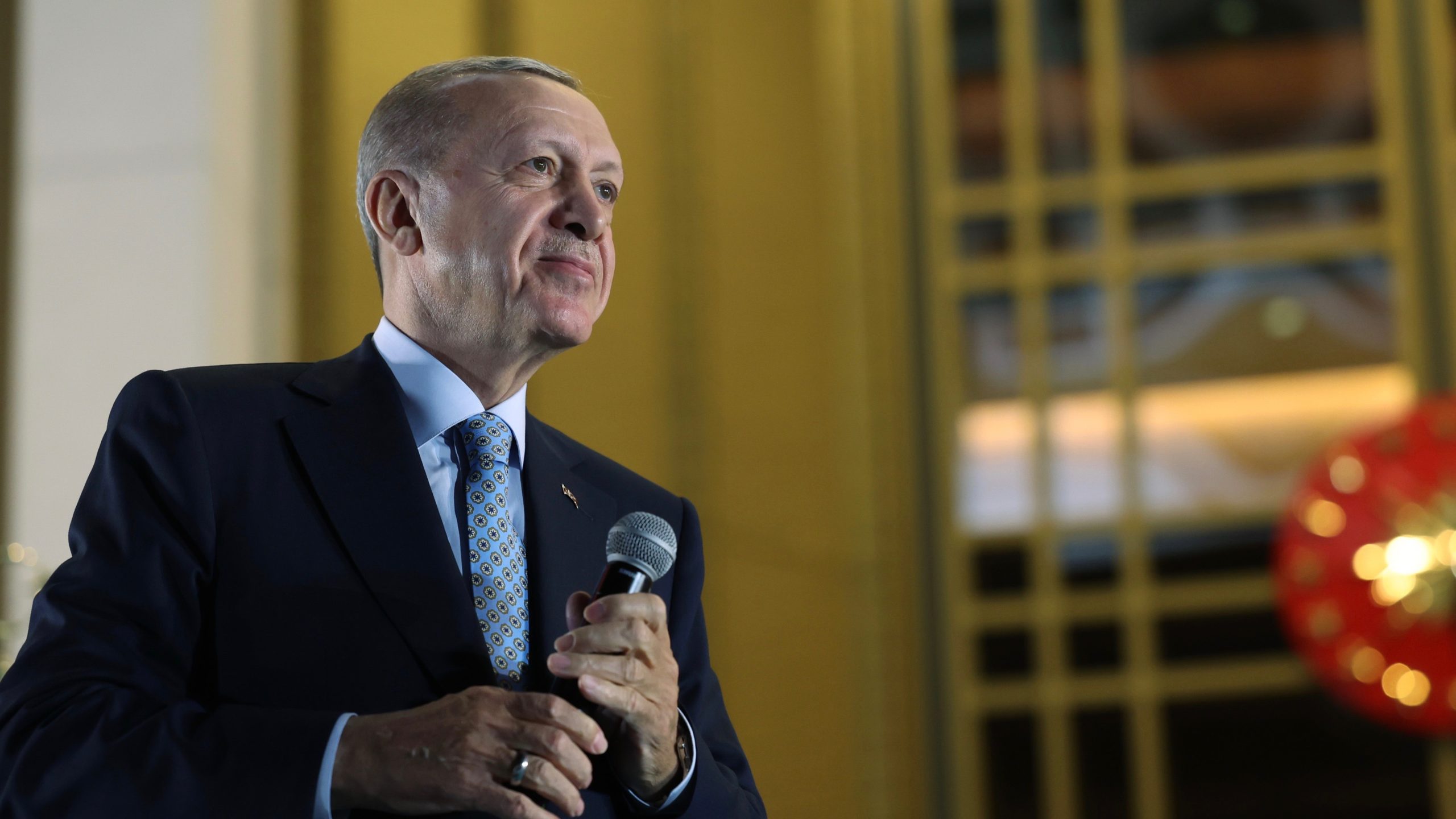Turkey’s incumbent President Recep Tayyip Erdoğan has secured another term in office after being declared the winner of a runoff election held on Sunday, May 28.
With 99.85% of ballots counted according to an unofficial tally by the state-run news organization Anadolu Agency, , the leader of the ruling Justice and Development Party (AKP) received 52.16% of votes against his opponent Kemal Kılıçdaroğlu from the Republican People’s Party-led Nation Alliance, who received 47.84%.
Erdoğan’s victory was declared by the head of Turkey’s Supreme Election Council on Sunday.
The runoff was triggered after no candidate was able to secure 50%+1 of votes in the first round of elections held on May 14. Erdoğan, who has been in power for 20 years, had won 49.52% of the votes, with Kılıçdaroğlu coming in second with a vote share of 44.88%, followed by Sinan Oğan, a candidate from the far-right ATA alliance.
The May 14 elections also saw the ruling AKP and its allies secure 322 seats in the 600-seat parliament. Meanwhile, the opposition alliance won 213 seats, with the CHP securing a share of 169.
The elections were held at a time when Turkey has been facing a severe cost of living crisis, with inflation standing at 50.5% in March, having soared to over 85% in October 2022. The Turkish lira lost 30% of its value against the US dollar in 2022, having already depreciated by 44% in 2021.
The economic crisis had been years in the making, leading to mass mobilizations by trade unions to demand a living wage.
Watch: Anıl Çınar of the Communist Party of Turkey on what was at stake in the 2023 elections
The Erdoğan administration has also faced criticism for failing to adequately respond to the devastating earthquakes that killed over 50,000 people in Turkey and neighboring Syria in February.
Another key issue during the campaign period was that of immigration, particularly a growing right-wing nationalist rhetoric which saw the opposition call for the expulsion of refugees and migrants, while the government doubled-down on its policy of “voluntary repatriation” of Syrian refugees.
The rights of other marginalized communities have also been under threat, including LGBTQ+ peoples and women, especially in the aftermath of Turkey’s withdrawal from the Istanbul Convention on the prevention of violence against women, at a time when religious conservatism and gendered violence have been on the rise under the current administration.
Erdoğan has been repeatedly accused of implementing authoritarian policies and for the targeted persecution of progressive opposition forces and arrests of journalists and activists, especially ahead of the May election.
Meanwhile, political power has been decisively consolidated in Erdoğan’s favor following the 2017 constitutional referendum which placed Turkey under a presidential system of governance. Kılıçdaroğlu had pledged a return to the parliamentary system as part of his platform, denouncing Erdoğan’s “one-man rule”.
The opposition contender had also proposed changes in Turkey’s foreign policy informed by a pro-West approach.
Responding to Sunday’s election, the Communist Party of Turkey (TKP) said that the outcome did not “offer hope for a brighter future,” and denounced that the right to strike had been taken away and the “means of organizing have been usurped.” The party also denounced the government’s oppression of the poor and working class and “attacks on the values of the republic.”
The TKP has been vocal in its criticism of not only the administration, but of the failure of the opposition to offer a meaningful alternative to the people. Emphasizing that the struggles of the people could not be “squeezed” into the ballot box, the TKP called on working people to “organize for secularism, independence, and socialism.”





